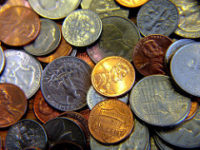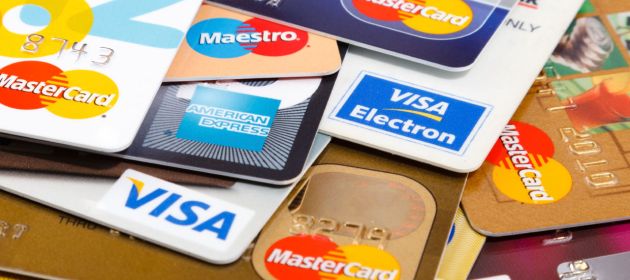I got my first credit card in the late ’80s. Since then, I’ve been a major fan of plastic. Rewards, deferred payment and a built-in line of defence from fraud – these are some of the reasons I pay with credit cards as far as possible.
One more reason why I prefer credit card is I get a proof of receipt automatically. See PSA: Insist On Receipt When You Pay By NEFT & FPS for details.
That said, during the same period, I’ve come across many people who’re wary of using credit cards. When I ask them why they eschew plastic, they give me several reasons, some of which are genuine (e.g. fear of incurring hefty fees if they forget to pay the bill on time) and others, rooted in misconceptions (e.g. credit card implies debt).
Banks earn interchange fees when their customers pay with credit cards. On the other hand, when consumers pay with cash, banks not only incur a cost on the ATM withdrawal but also don’t earn any interchange revenue on the cash transaction. To avoid this double whammy, it’s in the interest of banks to increase credit card usage (and reduce cash usage).
There are many ways by which banks can nudge fencesitters among their customer base to shed their inhibitions towards credit cards and thereby stimulate credit card volumes. Some of them are outlined below.
#1. Reiterate Deferred Payment
The average customer knows that they get up to 45 days to pay off a credit card purchase without incurring any charge. This is unlike debit card purchases where the money is taken off from the payer’s bank account within a day or two. It would help if banks reiterate this message, especially to convert debit card usage to credit card.
#2. Stop Nickel And Diming
 As far as I can recollect, all my credit card statements have always specified the payable amount to the second decimal place viz. ? 48,758.78. Since the 78 paise seems to be such a big deal for the bank, it can go ahead and round up the payable amount to the next higher ? (or £ or € or $, as the case may be) viz. 48,759. I’d rather overpay by 22 paise than incur late payment fees and interest charges if I miss out the 78 and pay only ? 48758.
As far as I can recollect, all my credit card statements have always specified the payable amount to the second decimal place viz. ? 48,758.78. Since the 78 paise seems to be such a big deal for the bank, it can go ahead and round up the payable amount to the next higher ? (or £ or € or $, as the case may be) viz. 48,759. I’d rather overpay by 22 paise than incur late payment fees and interest charges if I miss out the 78 and pay only ? 48758.
#3. Alert Due Date
I normally pay my credit card bills well before they’re due, so I don’t need a reminder for the deadline from my card issuer. But, on the one occasion that I forgot to make the payment – more on that in Credit Where Credit Is Due – HSBC Case Study – I didn’t get any alert from the bank. Going by this datapoint of one, I’m assuming that issuing reminders is not an industry practice du jour. It should become one. By sending an alert a couple of days before the due date, banks can assuage the anxiety many people have of incurring hefty fees if they forget to pay the bill on time.
#4. Make Redemption Frictionless
The rewards redemption process is fraught with friction at several steps: Accessing the gift portal via SSO from Online Banking fails half the time; gift portal is unwieldly, so by the time you select your gifts and add them to the shopping cart, the portal times out and you have to start all over again. Once you’ve placed the order, you’ve to follow up with the bank and / or courier company to prevent theft, which is not such a rare occurrence as I’d highlighted in Beware of Credit Card Reward Redemption Theft and Bank Insources Credit Card Reward Redemption Theft.
Props to @HDFC_Bank for ensuring that its redemption consignments are not stolen in transit. Wish HSBC did the same. http://t.co/N5gjLD22xq
— Ketharaman Swaminathan (@s_ketharaman) March 13, 2014
Instead of making customers jump through so many hoops to get what’s rightfully theirs, banks should make sure that cardholders can order and receive their gifts in a painless manner.
#5. Increase Credit Limit
According to Balance Due: Credit Card Debit Nears $1 Trillion As Banks Push Plastic in Wall Street Journal, CapitalOne, the fourth largest credit card issuer in the USA, increased credit card spend 20% year-on-year by raising spending limits. So can other card issuers.
The above list is by no means exhaustive. I’m sure readers can think of a few more ways to stimulate credit card use.
I’m also sure that skeptics among readers will be wondering why a bank shouldn’t just continue with the status quo. After all,
- by making the gift redemption process cumbersome, banks discourage cardholders from claiming their gifts, which leads to breakage, which in turn saves money for banks
- by specifying the payable amount to the second decimal place, banks will earn late payment charges and interest charges when cardholders pay only the amount before the decimal place, which would count as shortpayment.
I wouldn’t disagree with the skeptics: Banks do have a vested interest in ignoring my above suggestions.
That said, I’m hopeful that there are some banks out there who’re customer-centric (or at least wish to appear that way!). By implementing one or more of the above measures, they can
- earn greater interchange revenues when credit card volumes go up
- save cash handling and ATM costs when cash volumes come down
- regain the trust that they’d lost in the wake of the Great Financial Crisis
If my optimism is misplaced, there’s always regulation!



